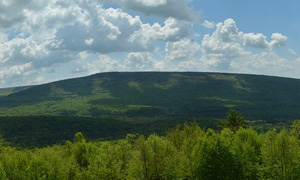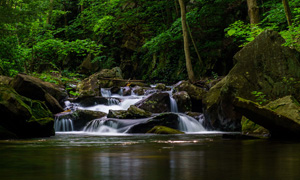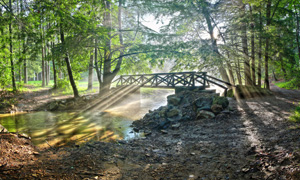HB 2004 to wrest control of the Keystone Recreation Park & Conservation Fund from agency control and hand it to the legislature passed out of committee and will come before the full House.
Dear Park and Forest Supporter:
Unfortunately, but perhaps not surprisingly, HB 2004 passed out of the Environmental Resources & Energy Committee yesterday morning. The vote was 15-10:
Thank you for reaching out to your legislator. If your member voted against the measure, please contact them, thank them, and ask them to stand firm in support of the Keystone Fund. If they voted in favor of it and against your parks and forests, please contact them to express your disapproval.
And now our attention must turn to the full House where this could come up as early as next week. Again, your Representative can be determined with the Find My Legislator tool on the General Assembly’s website. You will be linked directly to their own webpage where you will find a contact form.
The bill’s sponsors are Jason Ortitay (primary sponsor), Seth Grove, Francis Ryan, Stephen Barrar, Rob Kauffman, Lee James, Dawn Keefer, Dan Moul, Aaron Bernstine, and Barbara Gleim. Collectively, these representatives’ districts include Caledonia, Colonel Denning, Hillman, Kings Gap, McConnells Mill, Oil Creek, Pine Grove Furnace, and Pinchot state parks, and Clear Creek and Michaux state forests.
In addition to funding projects in our state parks and forests, the Keystone Fund also provides funding for libraries, historic preservation, open space protection, and community recreation enhancements. The Keystone Fund website provides an interactive project map showing the number of projects and the grant amounts made for community recreation and open space protection. Look for your county and determine for yourself whether the program is working and then mention that in your comments. (Note the website does not yet include 2019 grants.)
Our letter yesterday (and the letter we will send again) makes these key points that you might want to reiterate:
- The Keystone Fund was approved unanimously in the state Senate, with only three votes in opposition from the state House, and with 67% approval of the voters in 1993. It has a 26 year history of success.
- In establishing the Keystone Fund, the General Assembly sought to create a dedicated and permanent funding source for making investments in recreation, parks, conservation, libraries, historical preservation, and education.
- Over 97% of Pennsylvanians still believe that funds set aside for the specific purpose of taking care of our public lands and local community resources SHOULD CONTINUE TO BE USED FOR THAT PURPOSE.
- HB 2004 overturns the agreement with the citizens of the commonwealth by removing automatic allocation of the funds away from the agreed upon agencies and placing control with the General Assembly.
- HB 2004 creates unpredictable funding and stands to reduce funding for important programs and projects. Unpredictable funding makes it difficult to plan for multi-year projects. Currently, there is more demand than funds available for the grants administered by the Department of Conservation and Natural Resources and more park and forest maintenance projects than there are funds.
- The proposal in HB 2004 eliminates the certainty that comes with knowing how much of the reality transfer tax each agency will receive and eliminates the percentage allocated to agencies and programs, which means in any given year funds could be withheld or directed away from certain programs. It substitutes political favoritism for the Fund’s needs-based allocation of financial resources.
- The simplest of arguments: If it isn’t broken, don’t “fix” it.
Thank you for taking a few minutes to contact your elected official. We all know that we have been in the position of protecting the Keystone Fund before, although this is a new proposal that keeps the fund in name, but not in function. During COVID-19, more people have turned to their parks and forests than ever before, yet there are those that would allow these places to become unsafe and unusable by cutting critical funding for necessary projects. We cannot allow this.
We all know that once dedicated funds end up in the general fund, they often don’t make it to their intended audience OR they are used to replace general fund revenues to agencies, in essence reducing their budget allocation.
If you love your parks (at all levels) and forests, make your voice heard.
![]()
Marci J. Mowery, President





